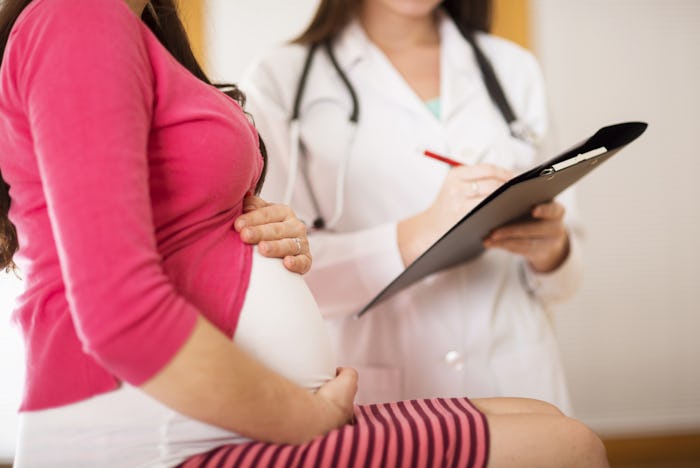Life

9 Questions To Ask Your Pediatrician To Reduce The Risk Of SIDS
As doctors and researchers continue to study Sudden Infant Death Syndrome, most commonly referred to as SIDS, there is more information on prevention than ever before. Sifting through all the details on your own can be valuable, but so can having a professional to run things by on a regular basis. As you prepare to take your new baby to her well visits, don't be shy about consider some of the questions to ask your pediatrician to reduce the risk of SIDS. If you have a concern, or need clarification, relying on your pediatrician to give you the support and answers you need will help you feel confident in being clear on SIDS prevention.
Most often, SIDS is associated with a poor or unsafe sleeping environment for the baby. However, there are some other risk factors to be considered when talking more about this with your pediatrician. As the website for Healthy Children pointed out, lowering the risk of SIDS can begin during pregnancy, by attending regular prenatal visits and not using tobacco, alcohol, or other drugs. Since there is not one exact cause or factor linked to SIDS, it's useful to know as much as you can about prevention measures.
The next time you visit your pediatrician, plan on brings these nine questions to ask to reduce the risk of SIDS.
1Is Putting My Baby To Sleep On Her Back Best?
The back to sleep position is hands down the most well known effort for SIDS prevention, but is it really that important? According to Parents magazine, back sleep is the safest position for babies, and should not be changed since babies are 18 times more likely to die of SIDS when placed on their stomach for a snooze."
2Which Type Of Mattress Is Best?
Outfitting your baby's best with the right mattress is a big deal. The website for What To Expect recommended getting a firm mattress for your baby to sleep on to help reduce the risk of SIDS.
3Can I Use A Sleep Positioner?
You might think your baby will be more comfortable and sleep longer if you introduce a sleep positioner to his crib. However, Baby Center reported that parents should not use sleep positioners products due to the risk of suffocation associated with sleep positioners.
4Does Breastfeeding Help?
In their detailed list of lowering SIDS risk factors, the website for the American SIDS Institute recommends a mother breastfeed her baby. There is a link between baby's who are breastfed for six months and low risk of SIDS.
5Can I Use Technology To Lower The Risk?
Even though there are some products marketed to prevent SIDS, don't bother purchasing it. The American Academy of Pediatrics recommended you avoid home monitors or commercial devices marketed to reduce the risk of SIDS.
6Can I Give My Baby A Pacifier?
Have mixed feelings on the paci? You may want to stock up. According to Mayo Clinic, letting your baby use a pacifier when sleeping may reduce SIDS risk.
7Are Soft Objects In The Crib Dangerous?
Until your baby is one year or older, keep the crib free of anything other than your child. "Pillows, quilts, comforters, sheepskins, bumper pads, and stuffed toys can cause your baby to suffocate," as Healthy Children reported.
8Are There Risks Aside From Sleep Environment?
It's true that SIDS is most commonly associated with sleeping babies, but there are precautions to take during the waking hours. As What To Expect's website pointed out, babies exposed to secondhand smoke are more at risk for SIDS.
9Can I Co-Sleep With My Baby?
This is a hot topic for parents, and one that is constantly being debated. But bed sharing has been associated with a higher risk of SIDS due to all the potential hazards, according to Parents magazine.